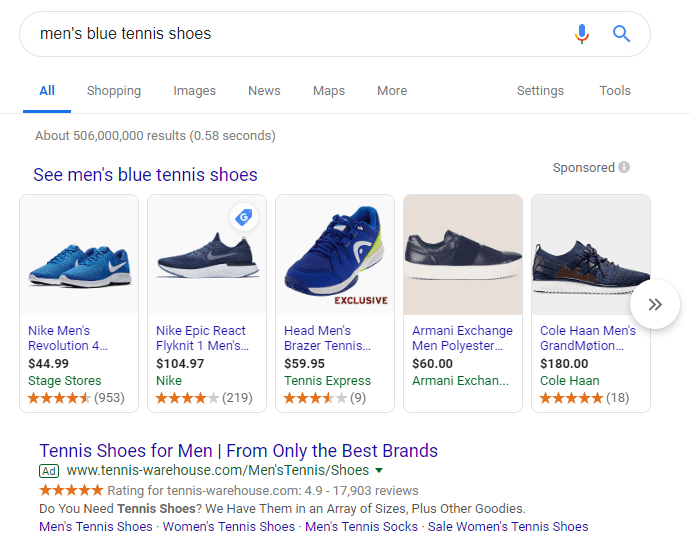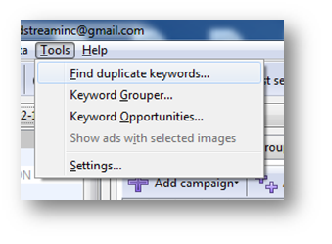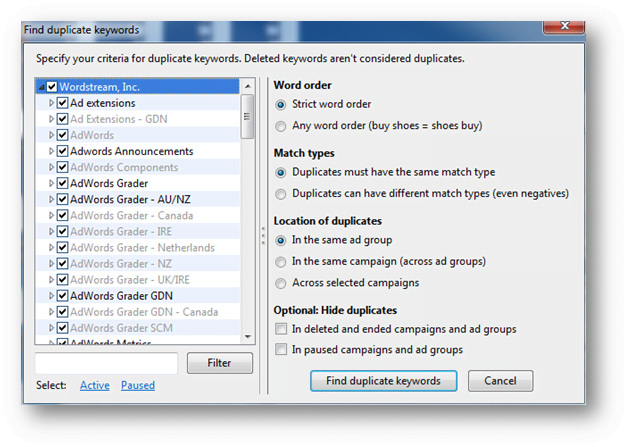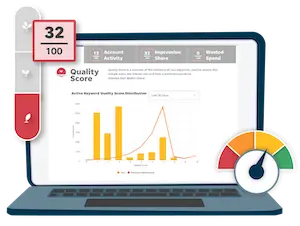At the beginning of the year, I had a pretty ambitious list of New Year’s resolutions queued up. Well, I’m ashamed to report that I’ve made little to no progress on them. In retrospect, my problem was that I set the bar far too high—I mean, who loses 20 pounds and masters the Spanish language in only 365 days?—and as a result, I’ve pretty much given up. When it comes to managing PPC accounts, I face a similar problem. I tend to bite off more than I can chew and then get too discouraged to complete it.
This year, I learned my lesson. I set more manageable goals and I’m determined to complete them. The first item on my checklist is to identify and remove duplicate keywords, so I can start next year with a nice, clean account.
Wait—what are duplicate keywords?
To answer that question, we need to get on the same page about what we mean by keywords.
Keywords are fundamental to running search campaigns through Google Ads. Basically, they’re the words and phrases related to the product, service, or content you’re advertising that you bid on to ensure your advertisements are eligible to show when consumers demonstrate interest in your business. When someone enters a search query into Google and it’s related to a keyword you’re bidding on, you have a chance of having your ad shown to the consumer.

You find yourself with duplicate keywords when you’re bidding on the exact same keyword with the exact same match type in a single search campaign more than once. For example, if you’re bidding on the exact match keyword [men’s blue tennis shoes] twice in one search campaign, you have a duplicate keyword on your hands.
Why you need to remove duplicate keywords
It’s nearly impossible to maintain a PPC account that is free of duplicate keywords, particularly if you have multiple managers working in one account, or are frequently adjusting match types and account settings. Some advertisers even set duplicates intentionally, thinking that their ad will appear twice for the same auction. Do not be fooled by this common misconception. Google Ads (formerly known as Google AdWords) will only show one ad per advertiser for each search.
Believe me, duplicates are dangerous. Not only can they have a detrimental impact on your Quality Scores, but they can also cannibalize your budget. If you are bidding on the same keyword twice, both will be entered into the same auctions and you will compete with yourself, driving up your own CPCs. Taking some time to dedupe an account every few months is a critical (albeit rarely executed) activity.
There seems to be a lot of confusion among advertisers regarding what constitutes a harmful duplicate keyword. Let’s set the record straight—duplicate keywords can hurt your account if they are identical keywords with the same match types, targeting the exact same audience. There is one caveat to this definition, which comes into play with broad match keywords. Be cognizant that broad match keywords are duplicates if they contain the same words, even in different orders. For example, chocolate cupcake frosting on broad match and frosting chocolate cupcakes on broad match are considered duplicates.
When it’s OK to NOT remove duplicate keywords
There are some situations in which it is perfectly acceptable to have duplicate keywords. For example:
- You can use duplicate keywords in campaigns set to serve ads to different geographical locations. This is a common practice, as many advertisers segment their account by region. In this case, it is fine to bid on the same keyword in each campaign, as they will never compete in the same auction.
- You can use the same keywords in search campaigns and display network campaigns. Since these keywords will be utilized in different circumstances, they will not hurt your account performance.
- Bidding on keywords that contain the same terms, but are set to different match types is completely kosher. In fact, this is a great way to test which match type is the right fit for a particular keyword. However, if you give this a shot, I highly recommend employing a stacked bidding strategy.
How to remove duplicate keywords in 3 easy steps
Identifying all duplicate keywords in an account may sound like a daunting task, but with a little Google Ads Editor magic, you can tick it off your to-do list pretty quickly. Here’s all you need to do:
Step 1
First things first, if you don’t already have it, download Google Ads Editor. This is Google’s free, offline tool and a must-have for all serious PPC-ers (even if Larry thinks it’s eventually going the way of the dodo).
Step 2
Once you’ve downloaded your account, head to the Tools dropdown and select “Find duplicate keywords.”

Step 3
As we discussed earlier, different types of duplicates have different impacts on an account. Select exactly what types of duplicates you want to catch based on word order, match types and location. You can also filter out those in deleted or paused campaigns, which will clutter your list.

There you have it, my fellow PPC-ers—all of your duplicate keywords in just a few clicks!
Now, all you need to do is review the list and make some executive decisions. I recommend nixing or editing any duplicate keywords that are in the same campaign and have the same match type.









Comments
Please read our Comment Policy before commenting.